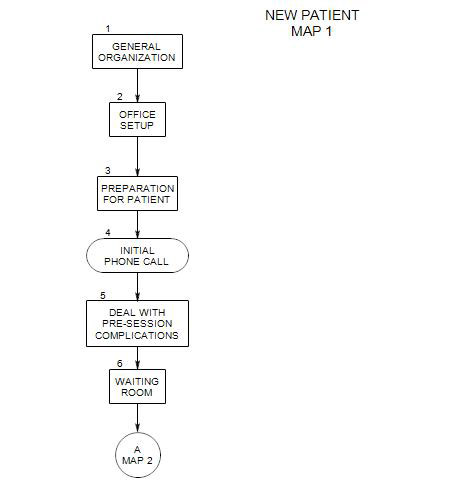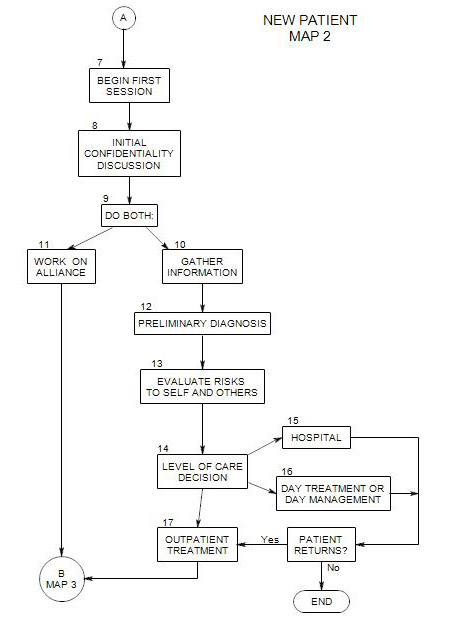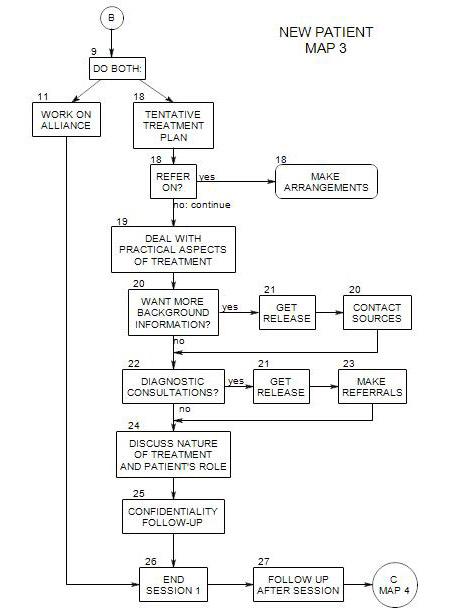-
Follows Section 22 on Map 3
It is often helpful to ask the patient’s reaction to the first session, as the session is drawing to a close, and you may want to pursue the issue a bit.
- It can give you an idea of the person’s expectations and whether they were met in the session. If not, you can address that issue before he/she leaves
- It gives you an opportunity to discuss just how much can be accomplished in a first session, as well as where the work might proceed in subsequent sessions.
- It gives the person an opportunity to ask questions about therapy and about you.
- It also provides additional diagnostic information, regarding the person’s expectations, ways of processing what has gone on, ability to be direct, etc.
This is a good time to discuss any rules you have regarding payment, missed appointments, etc. The question, of course, is how much to discuss these things. On the one hand, patients deserve to know what they are getting in to, as much as possible. On the other, too much administrative detail could make your relationship appear primarily financial or administrative, and drive some people away.
Sometimes a patient will want to know your personal information: age, treatment philosophy, family, hobbies, etc. Usually this has to do with whether you are good enough to help him/her. Sometimes, if you make that interpretation and suggest that he/she will have to evaluate your help as the treatment progresses, the person is relieved and feels understood. At the same time, your willingness to answer some questions directly and simply can be reassuring to some people.
As always, there is a balance to be made, in the service of moving the treatment forward. Some patients may be comforted and reassured by your revealing some personal information. For others, it may be jarring and intrusive.
Privacy and confidentiality issues go together but need to be addressed clearly and to some extent separately. Privacy may be of great concern to some people, who need to know whether they can be overheard in session or seen as they enter and leave. These issues can be both addressed honestly and explored for their meaning to the person.
Confidentiality issues are important from several perspectives: moral and ethical, legal, and in terms of trust and the person’s ability to disclose information freely. These are addressed in Section 25.



